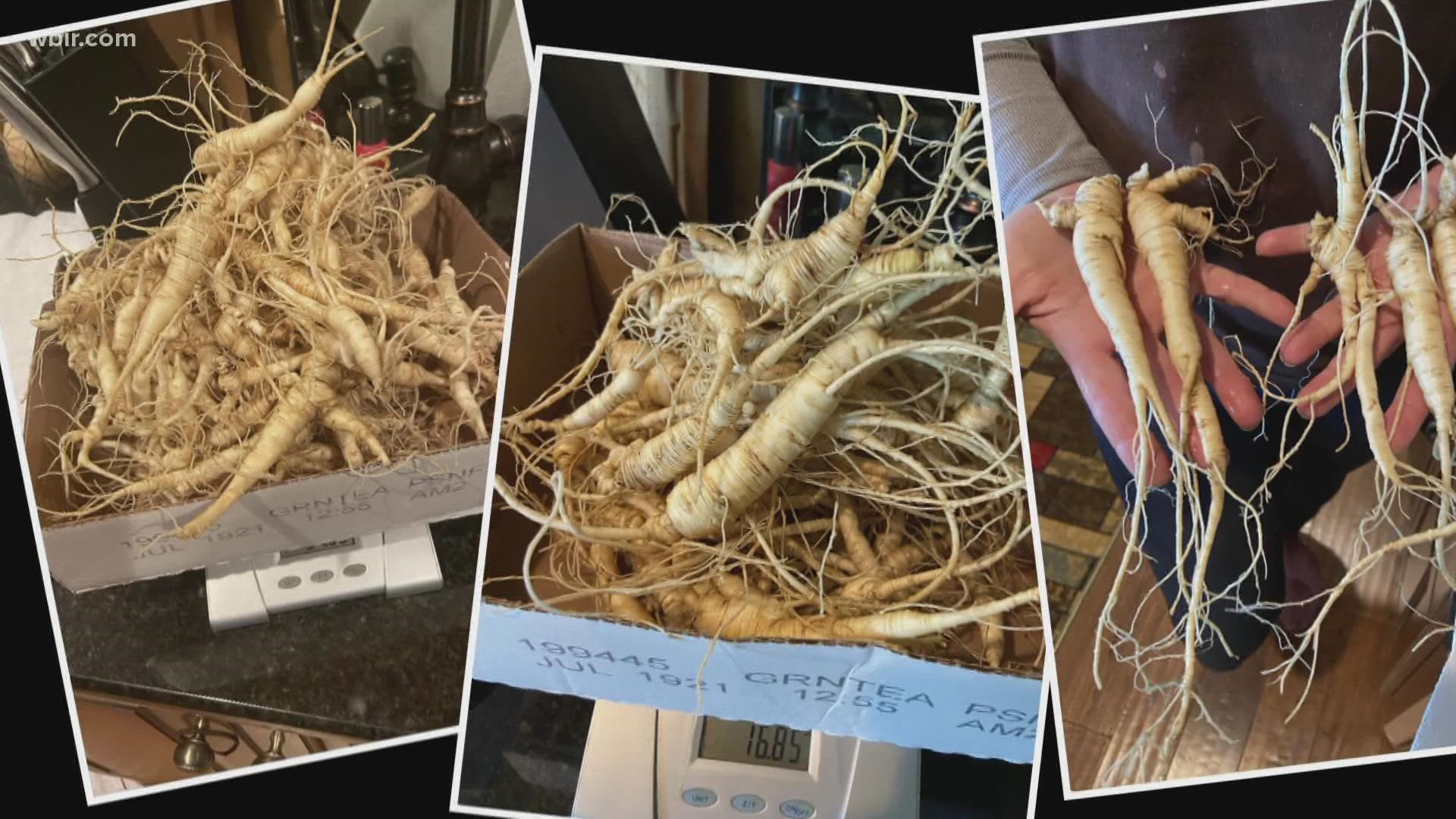CAMPBELL COUNTY, Tenn — Deep in the woods of Appalachia, the trees grow tall and plants dig their roots deep into the soil. Communities thrive from the work of all their members. Traditions are passed down from generation to generation.
Over hundreds of years, families have hunted ginseng. The root influenced the history of East Tennessee since the area was first settled, and hunters still roam the mountains in search of the crop.
"It's a hobby, making a little bit of money, but it was more exercise and the fun of the hunt itself," said Jamie Wright, a ginseng hunter in Campbell County.
His family combed through the hills for years, returning to the hills year after year to harvest ginseng. His grandfather passed a pickaxe down to him, although he doesn't use it anymore.
Four years ago, Jamie's wife Pam Wright started hunting ginseng too. She said she was hooked.
The Wrights carry a journal filled with notes about the harvested ginseng. A few years later, after the roots have time to re-grow, the journal becomes a roadmap.
Wright said he would never share the journal with anybody. As with most ginseng hunters, where they find the plant is a closely-guarded secret.
The plant is endangered. Climate change impacted the ability of ginseng to grow, and massive harvests dating back years reduced its availability. Yet, demand has soared — and so has the price.
Ginseng is traditionally used in alternative Chinese medicine, which has grown in popularity. Buyers say Wild American Ginseng is more valuable than the Chinese version, making its price grow as high as $1,200 per pound in some years.
This year, ginseng hunters said that the price can be up to $900 per pound.
Ethan Swiggart works at Middle Tennessee State University's Ginseng Institute. There, he studies how ginseng grows and researches ways to improve it. He said it can take around two years for a seed to germinate and then another decade before a crop can be harvested
Its slow growth, high price and variety of uses have made ginseng a hot commodity. A community of ginseng hunters has also developed in Appalachia who tend to the plant. By hiding where it is grown, they say they protect it and give it space to grow.
"If it was everywhere, and it was easy, everybody would be doing it," said Pam Wright, Jamie's wife.
Instead of harvesting it for immediate profit, they practice sustainable agriculture and bring in a modest income from smaller harvests. That way, they can return to different spots year after year and find ginseng growing in the hills.
It started in the earliest Appalachian communities. Researchers said that for the past three centuries, Appalachain ginseng hunting has informed both the folklore of the region while influencing its economy.
And as the worldwide demand for ginseng grows, hunting for it can be dangerous. Hunters have always had to face the harsh demands of nature, with winding trails and steep hills. In Campbell County, two brothers went missing in September when they went out to look for ginseng.
Ginseng hunting season usually starts around September 1 and lasts until the first frost of the year. The plant is also in decline. Ginseng hunters can be permitted through the Tennessee Wildlife Resources Agency and report back to the agency to make sure commercial exploitation does not cause it to become extinct.
Anyone who wants to learn more about ginseng in Tennessee can reach out to MTSU's Ginseng Institute and help grow more of it.

